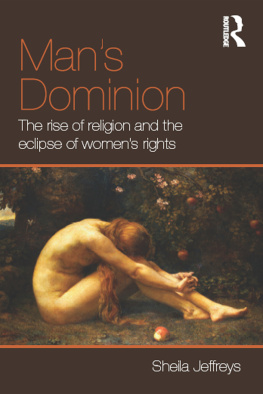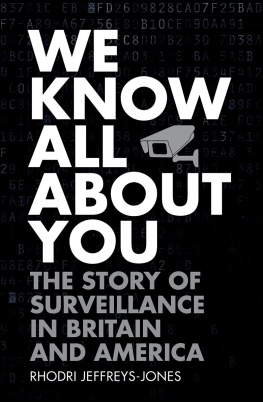Rhodri Jeffreys-Jones - The FBI
Here you can read online Rhodri Jeffreys-Jones - The FBI full text of the book (entire story) in english for free. Download pdf and epub, get meaning, cover and reviews about this ebook. year: 2007, genre: Detective and thriller. Description of the work, (preface) as well as reviews are available. Best literature library LitArk.com created for fans of good reading and offers a wide selection of genres:
Romance novel
Science fiction
Adventure
Detective
Science
History
Home and family
Prose
Art
Politics
Computer
Non-fiction
Religion
Business
Children
Humor
Choose a favorite category and find really read worthwhile books. Enjoy immersion in the world of imagination, feel the emotions of the characters or learn something new for yourself, make an fascinating discovery.

- Book:The FBI
- Author:
- Genre:
- Year:2007
- Rating:3 / 5
- Favourites:Add to favourites
- Your mark:
- 60
- 1
- 2
- 3
- 4
- 5
The FBI: summary, description and annotation
We offer to read an annotation, description, summary or preface (depends on what the author of the book "The FBI" wrote himself). If you haven't found the necessary information about the book — write in the comments, we will try to find it.
The FBI — read online for free the complete book (whole text) full work
Below is the text of the book, divided by pages. System saving the place of the last page read, allows you to conveniently read the book "The FBI" online for free, without having to search again every time where you left off. Put a bookmark, and you can go to the page where you finished reading at any time.
Font size:
Interval:
Bookmark:
THE FBI
a history
rhodri jeffreys-jones

Published with assistance from the Louis Stern Memorial Fund.
Copyright 2007 by Rhodri Jeffreys-Jones.
All rights reserved.
This book may not be reproduced, in whole or in part, including illustrations, in any form (beyond that copying permitted by Sections 107 and 108 of the U.S. Copyright Law and except by reviewers for the public press), without written permission from the publishers.
Designed by Mary Valencia
Set in Minion type by The Composing Room of Michigan, Inc.
Printed in the United States of America by Vail-Ballou Press, Binghamton, New York.
Library of Congress Cataloging-in-Publication Data
Jeffreys-Jones, Rhodri.
The FBI : a history / Rhodri Jeffreys-Jones.
p. cm.
Includes bibliographical references and index.
ISBN 978-0-300-11914-5 (alk. paper)
1. United States. Federal Bureau of InvestigationHistory. I. Title.
HV8144.F43J45 2007
363.250973dc22
2007014617
A catalog record for this book is available from the British Library.
The paper in this book meets the guidelines for permanence and durability of the Committee on Production Guidelines for Book Longevity of the Council on Library Resources.
10 9 8 7 6 5 4 3 2 1
A Caravan book. For more information, visit www.caravanbooks.org.
CHAPTER 1
Race and the Character of the FBI
CHAPTER 2
Secret Reconstruction, 18711905
CHAPTER 3
Proud Genesis, 19051909
CHAPTER 4
Loss of Mission, 19091924
CHAPTER 5
The First Age of Reform, 19241939
CHAPTER 6
Counterespionage and Control, 19381945
CHAPTER 7
The Alienation of Liberal America, 19241943
CHAPTER 8
Gestapo Fears and the Intelligence Schism, 19401975
CHAPTER 9
Anachronism as Myth and Reality, 19451972
CHAPTER 10
A Crisis of American Democracy, 19721975
CHAPTER 11
Reform and Its Critics, 19751980
CHAPTER 12
Mission Regained, 19811993
CHAPTER 13
Strife and Slippage, 19932001
CHAPTER 14
9/11 and the Quest for National Unity
This book stems from my long-standing interest in the American past, including especially the development of U.S. secret intelligence but also ranging more broadly from black and labor history through the rise of feminism. It is a background that has a bearing on my approach to the history of the FBI. Like most historians who have perused the FBIs case files, I have been impressed by their richness as a source, and I draw on them periodically in the following pages. But their seductive, vortex-like quality also impressed me. For this reason, I have tried to produce a work from a standpoint that is liberated from the bureaus filing system; in other words, it is the story of the FBI set in the context of broader historical currents.
As will be apparent from occasional comparisons made in the text, this is also a Europeans history of the FBI. Since the end of World War II, Europe has wobbled at varying speeds toward a federalist future. What could the European Union learn from the United States, I wondered, in the realms of policing, security arrangements, and anti-terrorism? To advance this inquiry, I proposed a History of the FBI Project, embracing not only this book but also work on the idea of a European FBI, to be published separately elsewhere. Conversely, Americans addressing the problems of FBI reform have drawn lessons from the European experience, with results on which I comment from my own perspective.
The British Academy awarded a research grant to prime the History of the FBI Project. Subsequently, I received a research leave award from the Arts and Humanities Research Council, and a Leverhulme Research Fellowship. The Gerald R. Ford Foundation supplemented this generosity, as did the Carnegie Trust for the Universities of Scotland, and the School of History and Classics and the Moray Fund at my university. The University of Edinburgh additionally granted me extra leave following my stint as head of history. For all this financial and leave support, I am most grateful.
Looking over the e-mail and paper correspondence files relating to my research, I feel humbled by the way so many librarians and archivists give generous support to individual scholars. The same applies to those who organize invitations to speak at conferences or institutions, in this case ranging from the Organization of American Historians to the Edinburgh Theatre Workshop. To give just one example, in spite of the remoteness of her field from the history of the FBI, Sonya O. Rose of the University of Michigan set up a lively faculty and graduate seminar for me to address. I learned a great deal (though doubtless not enough) from these exposures to critical scrutiny, and extend my thanks to all those involved.
Douglas M. Charles was my co-applicant for the British Academy grant that primed the project. He then served as my research assistant, but his help went far beyond the remunerated hours. He has been a constant source of information and ideas, and a discerning critic. My deepest thanks go to him.
It gives me great pleasure, also, to express my gratitude to the following individuals who helped by offering advice or critiquing drafts of the book, or both: Allida M. Black, Robert W. Cherny, Francis D. Cogliano, John Dumbrell, Gary Durkin, Owen Dudley Edwards, Sidney S. Fine, John F. Fox, Jr., Alex Goodall, Michael Goodman, Susan-Mary Grant, Michael Heale, Arthur S. Hulnick, Loch K. Johnson, Robert Mason, Gail Williams OBrien, Kathryn S. Olmsted, Susan Rosenfeld, Athan Theoharis, Christopher Waldrep, Thomas C. Wales, Hugh Wilford, Neil A. Wynn, and the anonymous reader for the publisher.
My agent Sydelle Kramer has been discriminating in her judgments and as supportive as ever. I acknowledge her help, and would like also to express my appreciation of the efforts of my editor at Yale University Press, Chris Rogers, and of his colleague Phil King, who together guided the project home.
At a time of family vicissitudes, my wife, Mary, has once again put up with the authorial absences and moods with which she has become all too familiar. To her, my thanks and everlasting love.
race and the character of the fbi
Although the Federal Bureau of Investigation is part of the U.S. Department of Justice, it has long been observed that it is an unjust organization. In the year 2003, people of Hispanic, African American, Asian, and Native American descent made up 33 percent of the United States population of 290 million. But members of those groups accounted for only 16.5 percent of the 11,633 special agents of the FBI.
The bureaus prejudice ran deeper than that of the nation at large. To take the indicative case of one ethnic group, African Americans made up 9.7 percent of the House of Representatives. This was a shortfall in that they formed 13.3 percent of the population. But the FBI was in a different league. Blacks composed just 5.5 percent of its special agent force.
Against this background, in recent years a concern has emerged that racial imbalance in the bureau endangered not just the welfare of minorities and the American system of justice, but also national security. That the imbalance persisted in defiance of the concern confirms the power of the dominant theme in the FBIs history, race.
Next pageFont size:
Interval:
Bookmark:
Similar books «The FBI»
Look at similar books to The FBI. We have selected literature similar in name and meaning in the hope of providing readers with more options to find new, interesting, not yet read works.
Discussion, reviews of the book The FBI and just readers' own opinions. Leave your comments, write what you think about the work, its meaning or the main characters. Specify what exactly you liked and what you didn't like, and why you think so.








